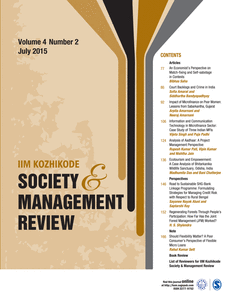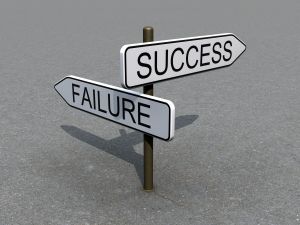How Important is Self-Managing Leadership for Crisis Management?
Crises are common in the modern world and the value system of leaders plays a crucial role in effectively managing a crisis. The article “Role of Self-managing Leadership in Crisis Management: An Empirical Study on the Effectiveness of Rajayoga” explores the role of self-managing leadership in crisis management. The topic is particularly pertinent because many crisis management blunders can be attributed to leadership failures, and in the context of business, lack of effective crisis management has led to downfall of many businesses.
 Crises can be generalized along a spectrum—on one end, you have individual crises, and on the other end, you have global crises. However, in all cases, it is individuals who have to provide leadership, whether it be for individual crises, organizational crises, or global crises.
Crises can be generalized along a spectrum—on one end, you have individual crises, and on the other end, you have global crises. However, in all cases, it is individuals who have to provide leadership, whether it be for individual crises, organizational crises, or global crises.
In rapidly changing times, the challenge to an organization is to provide a framework for people to understand their journey through change so they can contribute their best work to the organization. In order to act as a leader or an agent of change within an organization, employees must be able to bring about significant change within their organization. The rate of external environmental change is inexplicably linked to self-management—as changes increase, self-management becomes more important. Because it is hardly possible to control the external environment, emphasis has shifted towards managing the inner environment and harnessing resources within an organization. The future of an organization rests on the autonomy, maturity and confidence of the people. Many employees are trained with particular technical and functional-oriented skills, and later promoted on the basis of those skills. However, those skills primarily prepare employees to work in a relatively stable environment, not in a rapidly changing and at times chaotic environment. Thus, the skills necessary for employees now are those that help employees lead through a never-ending process of change.
those skills primarily prepare employees to work in a relatively stable environment, not in a rapidly changing and at times chaotic environment. Thus, the skills necessary for employees now are those that help employees lead through a never-ending process of change.
The abstract:
Crises are common in the modern world and the value system of leaders plays a crucial role in effectively managing the crises. The role of self-managing leadership in crisis management is explored in this article. An empirical study is conducted to understand the effectiveness of the ancient self-management technique called Rajayoga. It is based on a sample survey among two groups—one group not practicing Rajayoga and the other group practicing Rajayoga. It is found that the inner powers and innate values have a positive correlation with crises management capabilities. Further, these capabilities and correlations are found to be stronger in a group of people practicing Rajayoga for self-empowerment. The relationship between inner powers and innate values, the interactivity and proactivity among the inner powers, the relationship between the ‘doing’ powers and the ‘being’ powers are also confirmed through the study.
You can read “Role of Self-managing Leadership in Crisis Management: An Empirical Study on the Effectiveness of Rajayoga” from IIM Kozhikode Society & Management Review free for the next two weeks by clicking here. Want to know about all the latest research from IIM Kozhikode Society & Management Review? Click here to sign up for e-alerts!





















































































